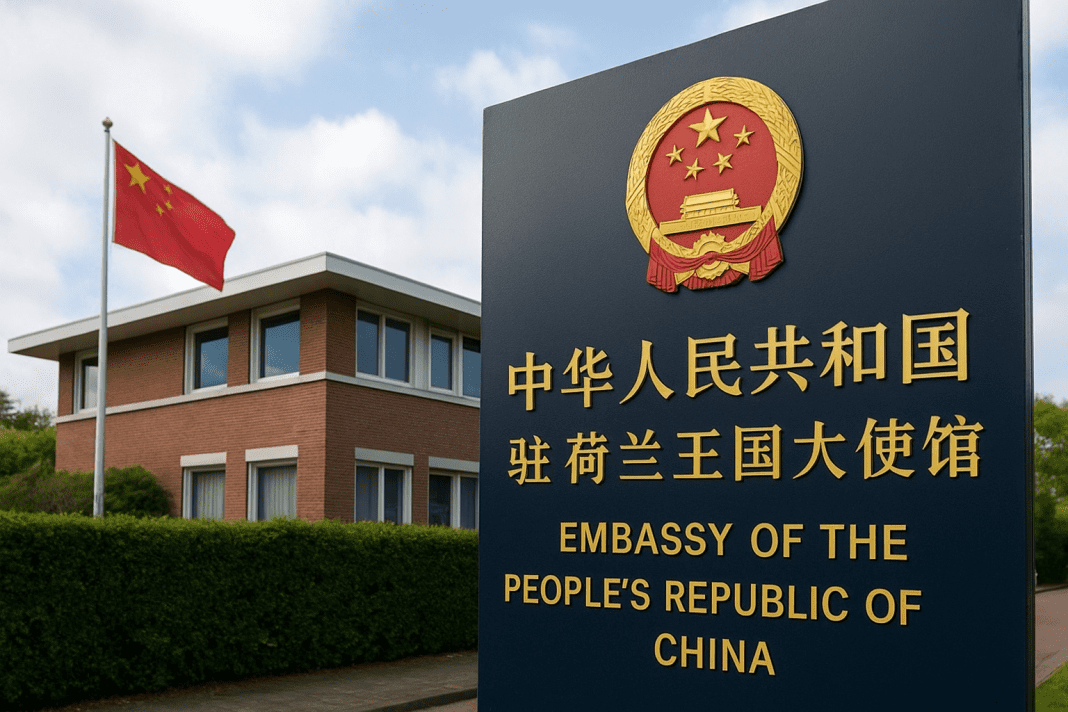The Chinese Embassy in the Netherlands has firmly denied claims that hackers linked to China carried out a cyberattack against the Netherlands. Late on Thursday, the Chinese Embassy issued a clear statement describing the accusation as “groundless” and without evidence.
Chinese Embassy Calls Allegation Groundless
According to the Chinese Embassy, China strongly opposes the claim and has urged Dutch authorities to act responsibly when addressing issues of cyber security. The Chinese Embassy stressed that linking China to hacking activities without proof not only damages trust but also spreads a misleading picture.
The statement emphasized that China has always taken a tough position against cyberattacks of any kind. The Embassy pointed out that China itself suffers heavily from hacking attempts every year, making it one of the biggest victims of cyber threats globally.
Hackers claim cyberattack on Iran shipping firms disrupts 60 vessels amid Gulf of Oman drills
By rejecting the allegation, the Chinese Embassy highlighted that China’s laws strictly forbid its citizens, institutions, or infrastructure from being used to carry out such illegal online activities. The message from Beijing was firm: China does not allow anyone to use its territory or systems for cyberattacks.
China’s Position on Cyber Security
In its response, the Chinese Embassy highlighted China’s long-standing approach to cyber security. It described China as both a defender of online safety and a frequent victim of online intrusions.
Cyberattacks can target anything from government networks to financial institutions and even private businesses. The Embassy noted that because of the widespread use of technology, countries across the world face the same risks. For China, this is a serious problem, and the government claims it invests heavily in preventing such attacks.
The embassy explained that Chinese law contains strict measures to stop cybercrimes. Any individual or organization within China caught engaging in such acts faces strong legal action. Officials stressed that this rule applies to everyone equally, regardless of their position.
Cyberattack Hits Russian IT Leader, Financial Institutions at Risk
This explanation was meant to underline the point that accusations against China are unfair. If China itself does not tolerate cyberattacks within its own borders, it argued, then blaming it for hacking incidents abroad lacks any logical foundation.
The Embassy also underlined that cyber security challenges are shared across all nations. No single country is immune to these threats, and blaming others without proper evidence only adds confusion to an already complex issue.
Chinese Embassy Urges Responsible Dialogue
Along with denying the claims, the Chinese Embassy made an appeal to Dutch authorities to avoid smearing China over cyber security issues. It urged for a “responsible attitude” in dealing with sensitive matters like online safety.
According to the Chinese Embassy, pointing fingers will not solve the real dangers of cyberattacks. Instead, the focus should be on international cooperation. The Chinese Embassy said both China and the Netherlands, like all other countries, face common threats in cyberspace.
The Embassy expressed the view that dialogue and joint action are better paths forward. Working together, nations can create stronger protections and reduce the risks of hacking. For China, cyber security is not just a domestic issue but a global challenge that requires collaboration.
🔥 Russian hackers shut down Polish hydroelectric plant in dangerous cyberattack near Gdansk
The Chinese Embassy’s statement came as a reaction to the claims linking its hackers to attacks on Dutch systems. While rejecting these accusations, the Chinese Embassy repeated that China will not allow any individual or group to use its territory or digital infrastructure to launch cyberattacks.
The message was clear and direct. The Embassy considers China a defender of cyber security, not a violator. By calling the allegations groundless, the Embassy attempted to distance the country from the controversy and reinforce its role as a victim rather than an aggressor in the ongoing struggle against cyber threats.

